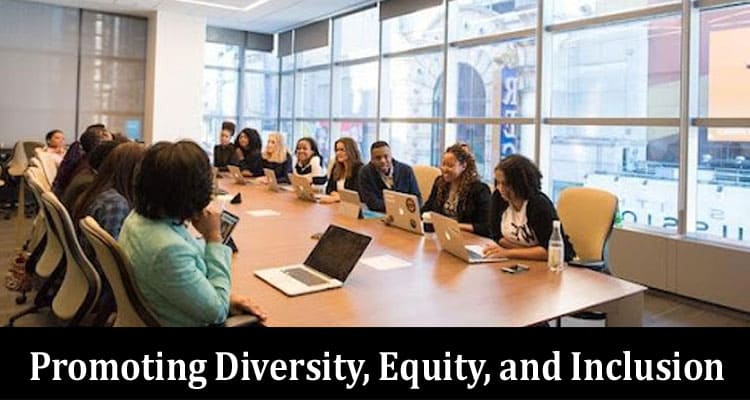Many people use the words diversity, equity, and inclusion interchangeably, but there is a distinction between them. Diversity encompasses all the ways that people are different from one another. Equity means that everyone has an opportunity to participate in the resources and benefits of society, regardless of their differences. Inclusion means that people are welcomed and respected in their workplaces and communities and that their voices are heard.
Promoting Diversity, Equity, and Inclusion
Creating a diverse, equitable, and inclusive society is a fundamental goal of human rights. It is also essential for the economic and social well-being of communities and organizations. Achieving diversity equity and inclusion requires ongoing effort and commitment from individuals and organizations at all levels.
There are a number of ways to promote diversity, equity, and inclusion in your community or organization. Some key strategies include:
- Promoting diversity and inclusion in your workplace, policies, and practices
- Training and educating employees about diversity, equity, and inclusion
- Encouraging open dialogue and communication about sensitive issues
- Promoting cultural competency and sensitivity
- Fostering an environment of respect and inclusion for all employees and customers
The Benefits of DEI
The benefits of diversity, equity, and inclusion in the workplace are vast and far-reaching. When organizations embrace diversity, equity, and inclusion, they create an environment where everyone can feel safe, respected, and valued. Employees are more productive and innovative when they feel like they can be themselves at work, and that their unique perspectives are appreciated.
Impacts on the Bottom Line
When employees feel valued and respected, they are more likely to feel a sense of ownership and investment in their work. They are also more likely to be engaged and committed to the organization’s success. Inclusivity also helps organizations attract and retain top talent. A diverse and inclusive workplace is attractive to prospective employees, and it sends the message that the organization is committed to equity and respect for all.
There are a number of reasons why diversity, equity, and inclusion have such a positive impact on the bottom line. When organizations are diverse and inclusive, they are better able to understand and meet the needs of their customers. They are also better able to attract and retain top talent, which leads to improved performance and innovation. Additionally, a diverse and inclusive workplace is more likely to have a positive workplace culture, which contributes to employee satisfaction and loyalty.
Attracting Talented Prospects
Diversity, equity, and inclusion also help organizations attract and retain top talent. A diverse and inclusive workplace is seen as a desirable place to work, and employees are more likely to stay with an organization that values diversity. Studies have also shown that diverse teams are more successful than teams made up of just one type of person.
When it comes to the business case for diversity, equity, and inclusion, there are many reasons to get on board. But at its core, promoting diversity is about creating an environment where everyone can reach their full potential.
Research shows that diverse organizations are more effective and equitable workplaces. They are able to better understand and serve their customers, and they are more likely to have inventive and innovative work cultures.
Societal Benefits at Large
In addition, businesses that embrace diversity, equity, and inclusion are more likely to have a positive impact on society as a whole. They can help to break down barriers, promote social mobility, and create opportunities for all.
So why not promote diversity, equity, and inclusion in your workplace? There are many business reasons to do so, and it’s good for everyone – employees, customers, and society as a whole.


